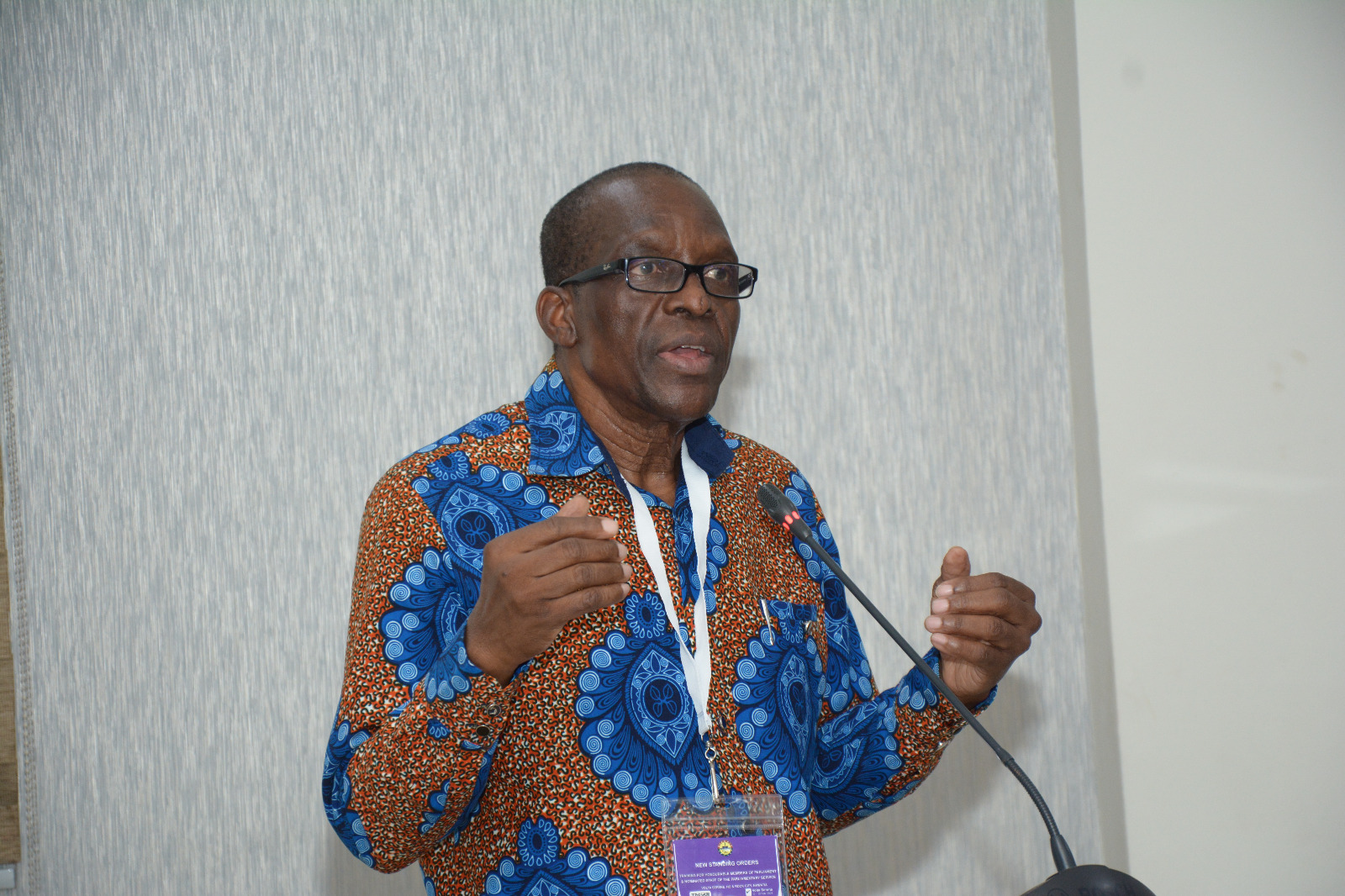The Rt. Hon, Speaker of Parliament, Alban Sumana Kingsford Bagbin, has stated that, the January, 2024 Standing Orders of Parliament offers an opportunity to address the evolving needs of Ghana’s dynamic and hybrid parliamentary democracy.
According the Rt.Hon. Speaker, the processes and procedures in the House is challenged, with time and practice exposing the gaps and deficiencies in the November 2000 Standing Orders. He further indicated that, the present composition of the House has brought those gaps and deficiencies into sharper focus even though, those deficiencies surfaced as far as the early 2001. “We must start aligning the conduct of business in the House with the evolving and changing trends and requirements of our Parliament. We need to know how to apply and cope with the January 2024 Standing Orders which has replaced the 2000 Orders. These are some of the reasons we are here today. As we say in Africa, “When the drummers alter their beats, the dancers must adjust their steps” he added.
The Rt.Hon. Speaker made this statement in his opening address at the orientation workshop for Members of Parliament and Procedural Staff on the new Standing Orders in Ho, over the weekend.
He stated that, the attendant composition of the House has brought to the fore several challenges with the old Standing Orders. These led to diverse interpretations of some procedures and practices, constant and acerbic verbal one-upmanship on the floor of the House, increased tensions, near fisticuffs, and eventually, including the pronouncement of the Supreme Court regarding the November 2000 Standing Orders.
The current Standing Orders of Parliament which came into effect on the 2nd of January 2024 assures for effective and efficient performance of Parliament and Parliamentarians.
The Speaker indicated that, the Parliament of Ghana’s Standing Orders are deeply rooted in the 1992 Constitution of the Republic of Ghana and drawing on the Darwinian concept of a “living organism.” It is a dynamic document that continues to evolve and therefore, the metaphorical representation of a “living Constitution” is a testament to its capacity to adapt to society’s ever-changing needs, reflecting the evolution of laws, policies and preferences. He borrowed the words of Laurent Fabius, the former Prime Minister of France, “The revision of legal documents may not be without imperfections, but at least it won’t be rigid. It will be a necessary step towards building the institution and country we desire.”
He advised Hon. Members of Parliament, to approach their work with diligence and innovation, given the fact that Parliament is confronted with an increasing level of public distrust, which must be tackled through their approach to work. To him “The 2020 general elections presented incontrovertible evidence of this and alerted us to the potential future shifts and turns in our country’s socio-political landscape”.
The Deputy Majority Leader and MP for Effutu, Hon Alexander Kwamina Afenyo-Markin in his remarks on behalf of the Majority Leader indicated that, the only weapon for an MP is the rules book (Standing Orders) and cited himself as example that, when he entered the chamber in 2013 and found himself fumbling, the only saviour was the rules book.
He therefore, advised his colleagues that, the only way to survive and stand on your feet and make meaningful contributions on the floor of the chamber in the midst of all intimidation is to stand firm and indicate that, you are within the rules.
He was therefore of the opinion that his colleagues should not take the rules for granted. “For the outgoing MPs, do not forget about the rules book as you are likely to come back and for those who would be retained, take the rules seriously”. He advised.
The Minority Chief Whip and MP for Adaklu, Hon. Kwame Governs Agbodza congratulated the Rt. Hon. Speaker for spearheading the revision of the Standing Orders and bringing it into operations. He was of the opinion that, the orientation will address members concerns and bring them up to speed on the new provisions and the rationale behind them. He entreated his colleagues to commit their attention to all the facilitators.
In his welcome remarks, the Clerk to Parliament, Mr. Cyril Kwabena Oteng Nsiah, indicated that, since the commencement of the previous Orders, Parliaments have been confronted with contemporary challenges such as the Covid-19 pandemic; institutionalization of mechanisms to promote the Open Parliament Concept; the hung nature of the Eighth Parliament, which is the first of its kind since the inception of the Fourth Republic, presented a number of novel situations and challenges that were not clearly provided for under the previous Standing Orders.
He mentioned some of the practices and procedures that has been introduced in the new Orders which includes the recital of the National Pledge on the first day of Sitting for each week, the conduct of a roll call of Hon. Members of Parliament, at each sitting of the House, at the behest of the Rt. Hon. Speaker. He added that, Parliamentary Committees have increased from thirty-one (31) to forty-four (44) to emphasise the new focus and direction of the House, as part of efforts to expand and improve parliamentary oversight of activities of state actors.


